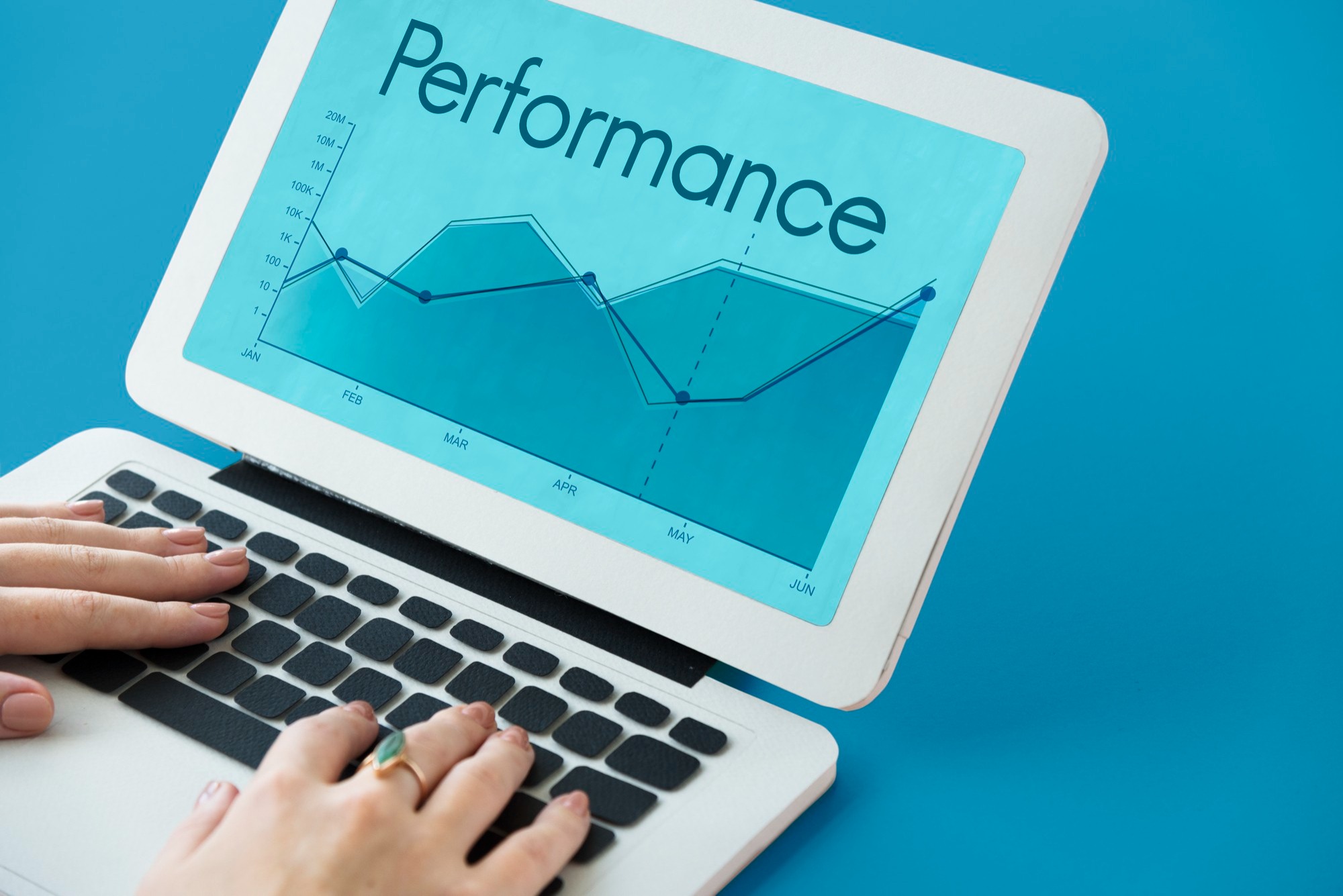
In the dynamic world of e-commerce, speed is a non-negotiable element of success. For businesses using Magento 2, optimizing for speed is critical in enhancing user experience and boosting conversions. CyberSolutions LLC brings you expert Magento 2 speed optimization tips to elevate your online store’s performance.
Why Speed Optimization is a Game-Changer in the Online Scene

The Importance of Speed in Digital Success
Today’s digital landscape is fast-paced. Speed is more than a convenience, especially in competitive hubs like Miami or any place in the US. It’s a critical factor in online success. This is where speed optimization becomes a game-changer. Understanding and implementing web performance optimization techniques can significantly impact your site’s effectiveness. It can also impact your business’s overall digital strategy.
Why Focus on Web Speed Optimization?
- Enhanced User Experience: Web performance optimization ensures that your website loads quickly. This provides a seamless experience for users. Remember, a fast-loading site is a user-friendly site.
- Improved Conversion Rates: Studies show that faster websites have better conversion rates. Implementing web performance optimization techniques can potentially increase revenue and customer engagement.
- Higher Search Engine Rankings: Search engines like Google prioritize faster websites. By focusing on web performance optimization, you’re also optimizing for better visibility in search results.
- Bottom Line: Ultimately, all these factors contribute to a healthier bottom line. A well-optimized website is an investment that pays off.
Understanding the Impact of Slow Websites
Web Speed optimization is not just about speed. It’s an essential component of user experience and engagement. A slow-loading website isn’t just a minor inconvenience. It’s a substantial barrier to engaging potential customers and audiences.
Key Consequences of Poor Website Performance:
User Experience Deterioration:
- Slow-loading pages frustrate users. This leads to higher bounce rates, as visitors quickly leave the site without engaging with the content.
- Poor User Satisfaction: Slow response times can lead to a negative brand perception. This decreases overall user satisfaction and loyalty.
Search Engine Ranking Penalties:
- Search engines like Google consider site speed as a ranking factor. This can lower search engine rankings. Slow websites are likely to be ranked lower in search results, reducing their visibility.
- Reduced Organic Traffic: Lower rankings lead to less organic traffic. Fewer users find the site through search engines.
Impact on Conversions and Sales:
- Decreased Conversion Rates: Slow websites often see a drop in conversion rates. Users are less likely to complete purchases or sign up for services on a site that doesn’t load quickly.
- The combination of reduced traffic and lower conversion rates can lead to a significant loss in revenue.
Mobile User Experience Challenges:
- Poor performance on mobile devices can particularly affect mobile users. As mobile internet usage increases, slow websites might affect users. This is especially true in areas with varying internet speeds and device capabilities.
Increased Operational Costs:
- Inefficiently designed websites can consume more server resources. This leads to higher operational costs.
- Slow websites might require more frequent updates and maintenance to address performance issues. This could increase the workload for IT and development teams.
Brand Image and Reputation:
- Negative Brand Perception: Slow loading times can harm your brand’s reputation. Users might associate the brand with poor performance and unreliability.
- In competitive markets, a slow website can put a business at a disadvantage. Faster, more efficient sites give competitors an edge.
SEO and Marketing Efforts Undermined:
- Slow websites can reduce the effectiveness of SEO and other marketing efforts. They lower the return on marketing investments. Even high traffic driven by marketing campaigns may not convert due to poor site performance.
Slow websites have consequences that extend far beyond the technical domain. They impact user experience, marketing effectiveness, sales, brand reputation, and operational costs. Investing in web performance optimization is crucial for the overall health and success of any online presence.

Top Magento 2 speed optimization Tips and Techniques
A faster Magento 2 site not only delivers a better user experience but also positively impacts your SEO. Speed is a key factor in Google’s ranking algorithm, making Magento 2 speed optimization vital for your online success.
Leverage Performance Magento Best Practices
- Utilize Magento’s performance toolkit to identify areas of improvement.
- Implement Magento best practices for code optimization and efficient design.
Optimize Server Response Time
- Invest in quality hosting that guarantees faster server response times for Magento 2 websites.
- Regularly conduct speed analysis to ensure optimal server performance.
Enable Caching for Faster Load Times
- Implement full-page caching to significantly reduce load times.
- Utilize browser caching to store frequently accessed resources locally.
Use a Content Delivery Network (CDN)
- A CDN can distribute your content globally, reducing latency and speeding up content delivery.
- This is especially crucial for Magento 2 mobile web performance optimization.
Optimize Images and Media
- Compress images without losing quality to enhance loading speed.
- Opt for modern image formats like WebP for better performance.
Minimize JavaScript and CSS Files
- Combine and minify JavaScript and CSS files to reduce the number of server requests.
- Utilize Magento’s built-in tools for this purpose.
Conduct Load Testing Regularly
- Regular load testing helps identify potential performance bottlenecks.
- Use this data for ongoing Magento 2 performance tuning.
Implement Advanced Performance Techniques
- Explore advanced Magento 2 web performance optimization techniques.
- Consider Magento 2 performance optimization of web applications for specific use cases.
Best Practices for Speed Optimization With Magento 2
Magento 2, a popular e-commerce platform, is known for its flexibility and functionality. Without proper optimization, your Magento 2 store can suffer from slow load times. This can negatively impact user experience and sales. Implementing Magento 2 speed optimization tips is essential for maintaining a competitive edge in the digital marketplace.

Key Areas of Focus for Magento 2 Speed Optimization
Server and Hosting Environment
- Choose a hosting provider specialized in Magento 2 speed optimization.
- Opt for a server location close to your primary audience.
- Regularly update your PHP version for improved performance.
Effective Use of Caching
- Implement Full Page Cache to speed up page load times.
- Use Magento 2’s built-in cache management tools.
- Consider Varnish Cache for advanced caching needs.
Image Optimization
- Compress images without sacrificing quality.
- Use lazy loading to delay loading of images until necessary.
- Implement new image formats like WebP for better compression and quality.
Minimizing and Merging Files
- Merge CSS and JavaScript files to reduce HTTP requests.
- Enable minification of CSS and JS to decrease file size.
- Use Magento 2’s built-in tools for merging and minification.
Content Delivery Network (CDN)
- Utilize a CDN to distribute content closer to your users.
- This reduces latency and improves load times, especially for a global audience.
Database Optimization
- Regularly clean up your database to remove unnecessary data.
- Optimize database settings for Magento 2.
Magento 2 Specific Optimizations
- Keep your Magento 2 installation up to date.
- Disable or remove unused extensions and modules.
- Utilize Magento 2’s performance best practices.
Mobile Optimization
- Ensure your site is responsive and mobile-friendly.
- Consider implementing AMP (Accelerated Mobile Pages) for faster mobile load times.
Regular Monitoring and Testing
- Performance Testing: Regularly test your website’s speed using tools like Google PageSpeed Insights.
- User Feedback: Gather and analyze user feedback regarding website performance.
- Continuous Improvement: Web speed optimization is an ongoing process, requiring regular updates and tweaks.
FAQs: Navigating the World of Magento 2 Speed Optimization Tips
How to improve website loading speed with Magento?
To improve website loading speed in Magento, prioritize server optimization with Magento-optimized hosting. Implement caching (like Full Page Cache), compress and optimize images, minimize and merge CSS and JavaScript files, and use a Content Delivery Network (CDN). These steps effectively reduce load times and enhance overall site performance.
How to optimize a website in Magento?
Magento 2 speed optimization tips involve updating to the latest Magento version, streamlining themes and templates, disabling unnecessary extensions, using Magento’s indexing features, setting up a Content Delivery Network (CDN), and ensuring a robust hosting environment. Regular performance audits are also crucial for identifying and addressing efficiency issues.
What are the tips to improve Magento 2 performance?
Here we have some additional Magento 2 speed optimization tips on performance: Upgrade to the latest version to improve performance. Use advanced caching techniques. Optimize images and implement lazy loading. Minify and merge JavaScript and CSS files. Regularly optimize the database. Also, disable unneeded modules. Additionally, ensure your server is specifically optimized for Magento 2’s requirements.
Final Thoughts: The Future of Web Speed and Magento 2
Looking towards the future, Magento 2 is expected to evolve with a focus on improving performance, user experience, and integrating with emerging technologies.
- Progressive Web Apps (PWAs): Magento 2 is expected to further integrate with Progressive Web Apps technology. PWAs offer app-like experiences on the web. They have faster load times and improved performance, especially on mobile devices.
- Advanced Caching Mechanisms: Future versions of Magento 2 might introduce more sophisticated caching solutions, possibly incorporating AI to predict and cache content dynamically based on user behavior and trends.
- Optimization for 5G Technology: As 5G becomes more widespread, Magento 2 could optimize for faster network speeds, ensuring that e-commerce stores load quickly and handle larger amounts of data more efficiently.
- Edge Computing Integration: Integrating Magento 2 with edge computing can reduce latency by processing data closer to the user’s location, leading to faster load times and enhanced user experience.
- Artificial Intelligence and Machine Learning: AI and ML could be utilized for smart performance optimization, where the system learns and adapts to optimize resource usage and speed based on real-time data.
- Automated Image and Video Optimization: Future Magento 2 versions may include more advanced, automated tools for optimizing media content in real-time, adjusting quality and format based on the user’s device and network conditions.
- Enhanced Code Optimization: Continued refinement of Magento 2’s codebase to make it leaner and more efficient, reducing bloat and enhancing speed.
- Serverless Architectures: Magento 2 might embrace serverless computing models, where backend services are hosted on cloud infrastructure, scaling automatically to meet demand and improving load times.
- Quantum Computing Integration: While still in its early stages, the future could see Magento 2 leveraging quantum computing for complex computations and data analysis, drastically improving performance and speed.
- Improved Database Management and Query Optimization: Advanced techniques in database management and query optimization can significantly enhance Magento 2’s speed, especially for large-scale e-commerce stores with extensive product catalogs.
These future techniques represent a combination of emerging technologies and optimization strategies. By adopting these, Magento 2 could offer unparalleled speed and efficiency, ensuring a seamless shopping experience for users and maintaining a competitive edge in the e-commerce industry.
Partner with CyberSolutions LLC
Partner with Cyber Solutions LLC and harness the power of optimized web performance. With our expertise in web development and optimization, We can reach new heights in the digital realm. Let’s make your website not just a portal, but a destination.
Is your website ready to meet the speed demands of the digital audience? Contact Cyber Solutions LLC today and unlock the full potential of your online presence.


